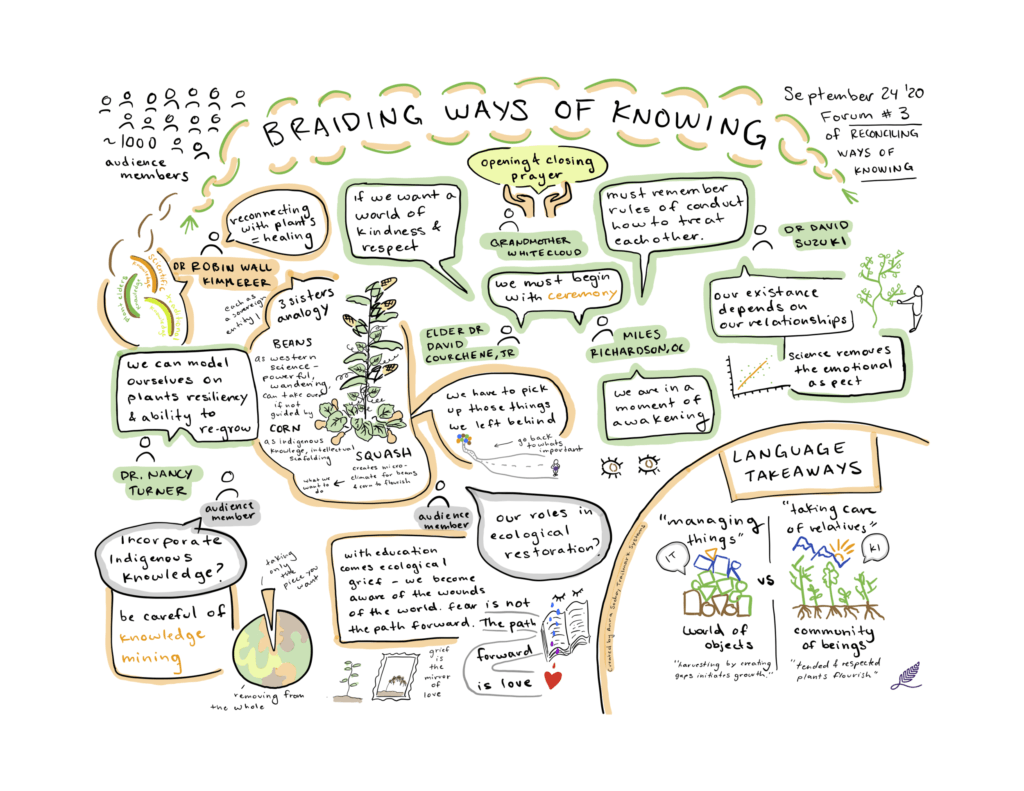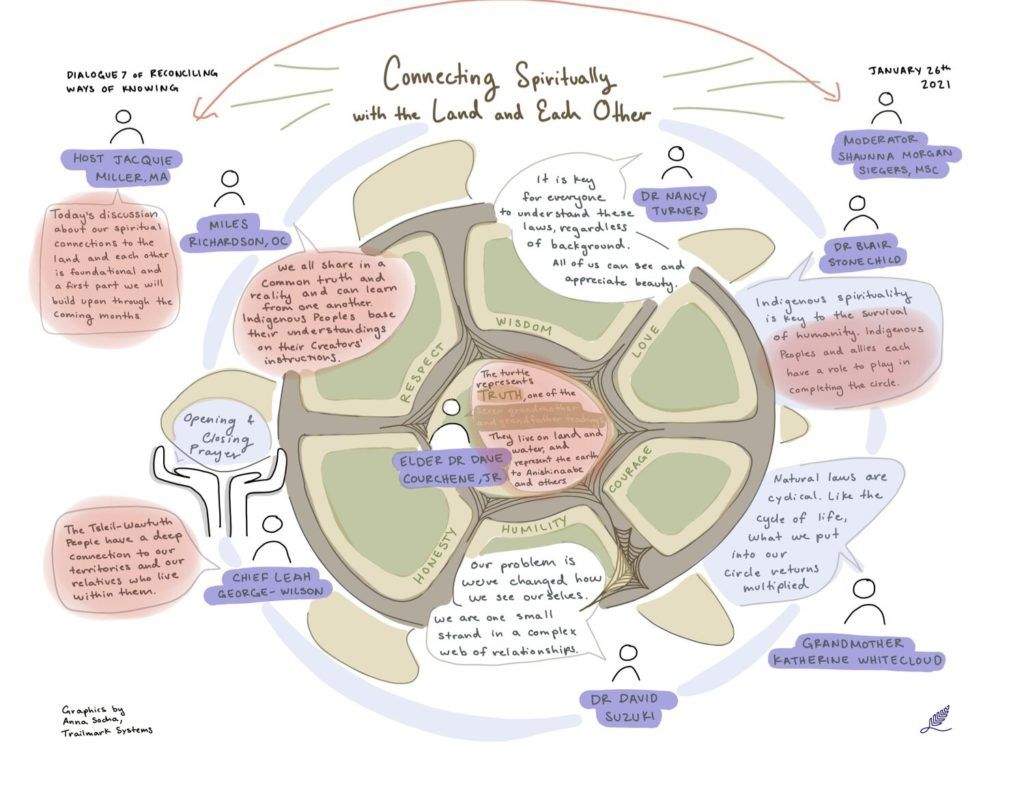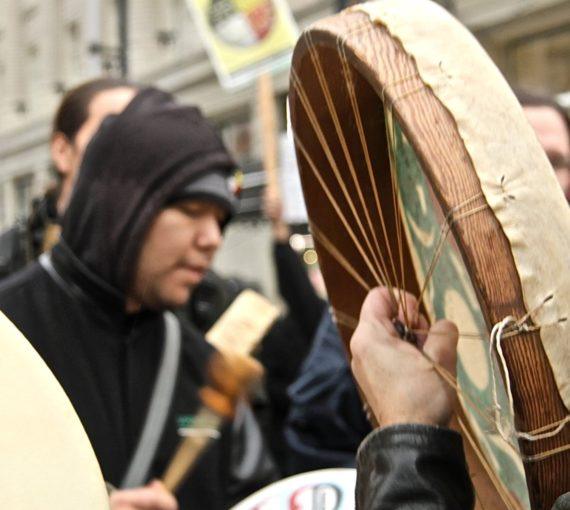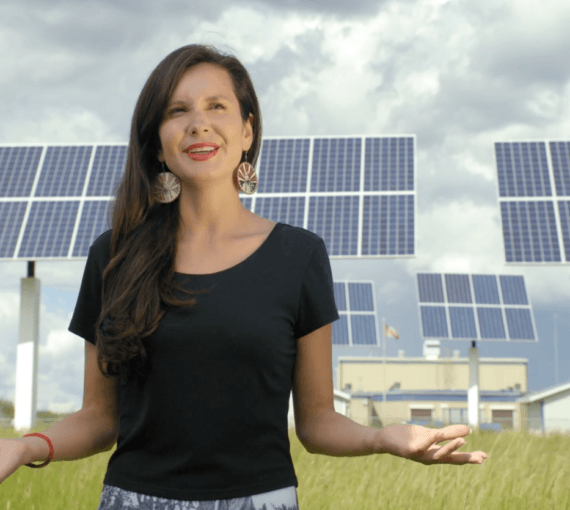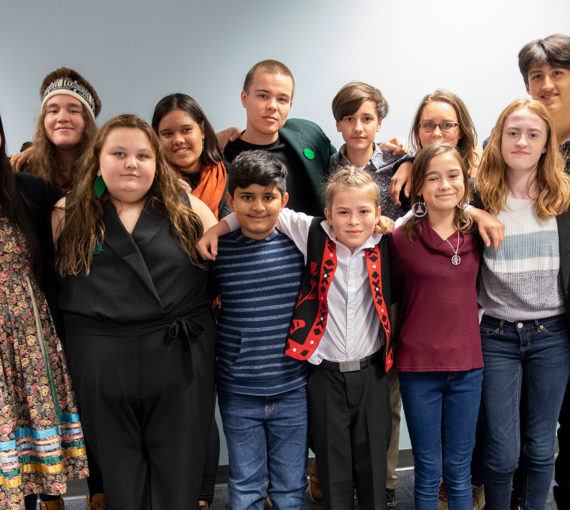You supported Reconciling Ways of Knowing, a groundbreaking Indigenous knowledge and science forum.
For generations, Western knowledge has invalidated Indigenous Peoples’ ways of being and knowing. Science has dominated Canadian society and decision-making across the globe.
Reconciling Ways of Knowing brings together Indigenous knowledge and science and builds relationships between Indigenous knowledge keepers and scientists. It aims to transform environmental stewardship approaches and solutions, and open pathways to live in greater balance with the planet and each other.
Because I grew up without culturally embedded elders, I was a little adrift but, in some ways that I cannot understand today … the plants said to me, ‘Well, we’re your elders. We’re your teachers.’ Those plants, in a beautiful and nurturing way, took me under their … leaf (wing!) and became my teachers. And it is out of profound gratitude and respect for that, that I do this work.
Robin Wall Kimmerer
Dialogues
Panelists include artists, educators, Indigenous elders and leaders, and scholars and scientists from diverse fields.
Dialogue 1 “Why reconciling ways of knowing?”
- Humanity’s collective spiritual crisis and the need for change if our species is to survive, including the importance of beginning and continuing projects with Indigenous knowledge keepers.
Dialogue 2 “Enacting ethical space in knowledge sharing”
- Indigenous ethics and knowledge and the “space of possibility” that exists between different spheres of culture.
Dialogue 3 “Braiding ways of knowing”
- Nature as teacher and how we can all “pick up and carry one piece” of the weight of the world.
Dialogue 4 “Two-eyed seeing and beyond”
- Etuaptmumk (two-eyed seeing), an idea that recognizes that better outcomes are more likely when two or more perspectives collaborate.
Dialogue 5 “Millennia of experience: Drawing on Indigenous knowledge in responding to COVID-19”
- How what Indigenous Peoples learned in historic pandemics informed their responses to COVID-19, and what Canada and the global community could learn from these lessons.
- Approaches to assessing and caring for the biological and cultural diversity of mountain regions.
Dialogue 7 “Connecting spiritually with the land and each other”
- Humanity’s foundational connection to nature is present in many Indigenous ways of knowing, but often missing from the dominant world view that’s shaped environmental policy in Canada.
Dialogue 8 “A conversation across ways of knowing and relating to land”
- Follow-up on Dialogue 7, centring Indigenous ways of knowing and relating to land, which carry a spiritual dimension for many.
If we believe the story that humans are better, separate and different from other living beings, then we get the world we have now, one that is wrought with crisis, trauma, and grief .… One pathway toward transformation … is to re-infuse our understandings of the world with the values of respect, reciprocity, reverence, responsibility, and relations.
Ways of Knowing blog post, Dialogue 3
Finding Solutions features stories of caring people like you who make everything here possible. You can read, share, discuss, take action, join, donate. Whatever you choose, you’re helping protect Earth’s life-support systems. Thank you.
